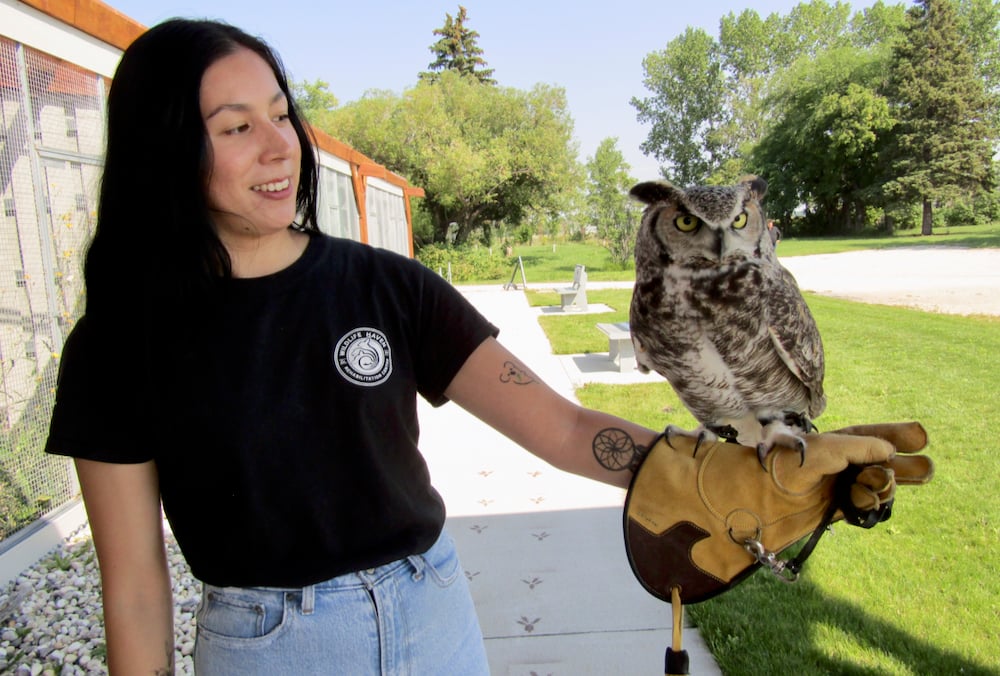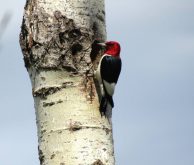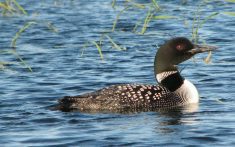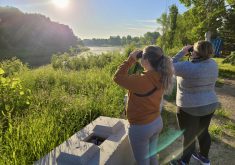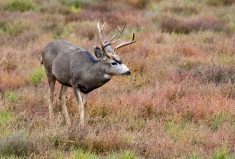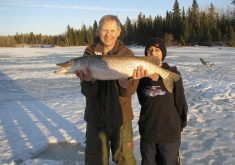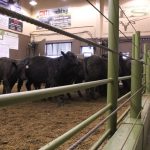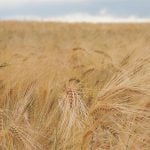Would you like to meet a great horned owl named Griffin? Or try conversing with Jet, a crow who laughs and says “hi”? Or maybe watch an eastern box turtle?
Would you like to learn more about these creatures and about work to help injured or orphaned birds and animals?
If so, consider booking a visit to the open house at Manitoba’s Wildlife Haven Rehabilitation Centre, scheduled Sept. 23-24. The Wildlife Haven is at 1028 Arnould Road at Île de Chênes, south of Winnipeg off Highway 59. It is well known as the place to contact if one encounters injured or orphaned birds or animals, but it is not normally open to the public. The open house is an opportunity to see how it operates.
Read Also

Glencore appears to be readying agriculture industry exit
Glencore wants to exit the agriculture business. Neil Townsend believes that is because there’s a “profitability problem” in agriculture.
Visitors will tour the Wildlife Veterinary Hospital and listen to presentations from workers and volunteers. Interactive activities for children and adults will be available and there will be an opportunity to visit with owls, vultures, hawks and reptiles.
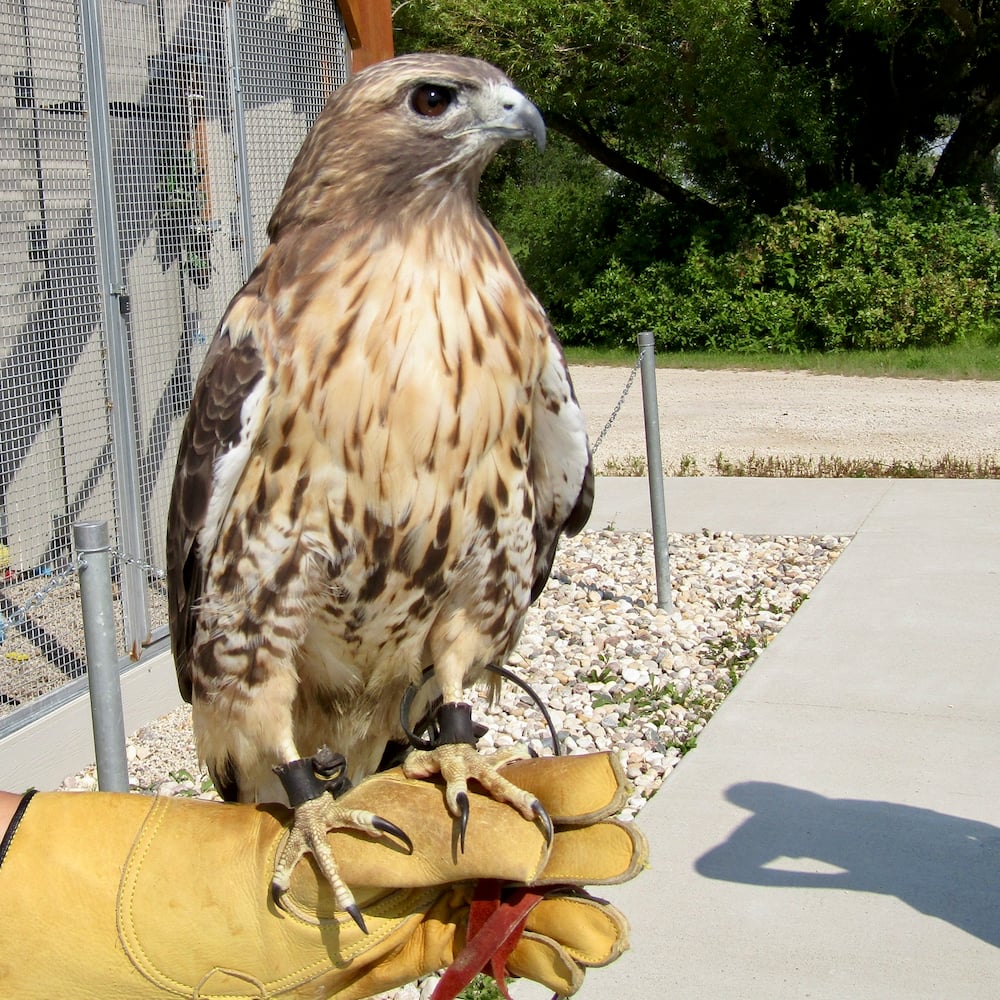
The Wildlife Rehabilitation Centre has been working with wildlife since 1984. Over the years, more than 50,000 creatures have been brought there. The animal or bird is cared for, treated if necessary and – when possible – released back into the wild. Usually such releases are done quietly, although I was once fortunate to watch as an eagle was released. It is always a thrilling event, especially for the centre’s workers.
The veterinary hospital is a recent addition, having opened in 2021. It is equipped with a licensed veterinarian, diagnostic equipment and certified wildlife rehabilitators and can conduct procedures and surgeries on the animals as needed.
Patients receive medical treatment and rehabilitation if necessary, along with the correct nutrition for their needs. A special room in the centre holds lists of each patient, their exact food requirements and the equipment to prepare it.

Patients are first admitted to the hospital for checks and treatments, but there are several other enclosures for recuperation. The haven covers about 18 acres, so these enclosures are scattered to keep different species apart and to avoid stress – songbirds in one, water birds and animals such as beavers and otters in another, and so on.
The key part of the Wildlife Haven is the Murray Education Centre. It offers occasional on-site presentations and activities about wildlife, as well as visits to schools and community events as requested. Sixteen ‘wildlife ambassadors’, including hawks, owls, a crow, a vulture and a number of reptiles, attend these educational events. The birds are all ones that, due to injury, cannot be returned to the wild.
One public event held this summer was the Reptile Rendezvous, held on six Fridays. Administrative assistant Kathryn Gibb said she expects it will be offered again next summer.
The haven operates with six regular employees, more in the summer, as well as the help of 137 registered volunteers. These volunteers contribute about 10,000 hours annually to the running of the haven.
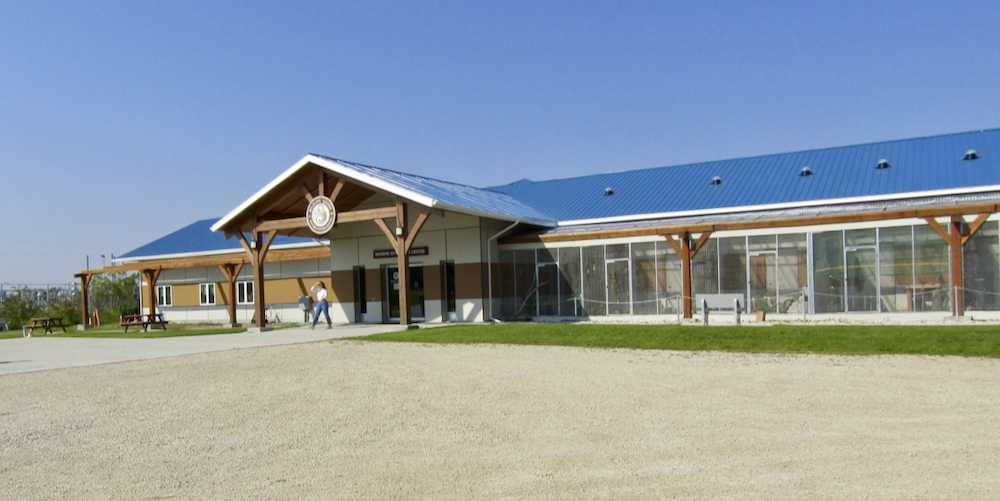
Injured or orphaned creatures are brought directly here by caring people or are picked up at various spots by volunteers.
“We have one volunteer who has already logged 600 hours this year,” said Gibb.
The haven receives no government funding but operates through grants from various organizations and donations from the public. Gardewine Trucking and Calm Air sometimes provide free transportation for patients coming to or leaving the haven.
Spring and summer are usually the busiest times, with many migrating and/or young birds brought for help. But no matter the season, there are always patients requiring attention. Sometimes well-meaning people bring newly fledged birds or baby mammals that they wrongly assume are orphaned. In fall, recovering birds that miss migration time are kept over winter and released in the spring. Last winter was busy with snowy owls — 11 were brought to the centre.
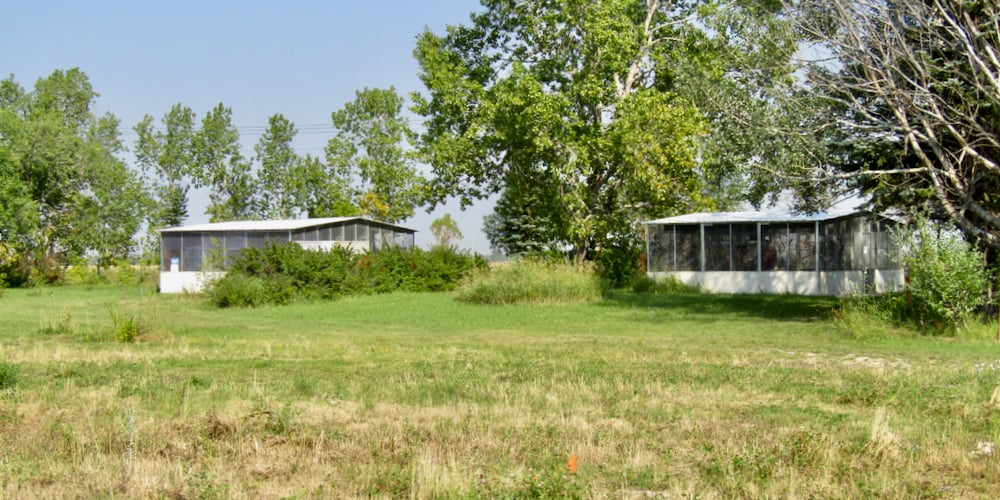
If you find wildlife requiring help, telephone the Wildlife Haven Rehabilitation Centre. Their phone lines are open seven days a week, with hours depending on the season. Don’t feed injured wildlife unless specifically advised to do so by the Wildlife Centre. Water may be offered, but not milk.
To avoid overcrowding at the open house on Sept. 23-24, those who wish to attend must buy tickets in advance and select a tour time. A limited number of tickets are available at a cost of $10 each, with no charge for children under two. Call (204) 878-3740.
Further information is available at wildlifehaven.ca/pages/open-house or at the telephone number above.





